Interior Doors Are An Integral Part Of A Room's Decor
Interior doors seem utilitarian and uninteresting, but they can be an integral part of a room's decor. There are many types and styles of interior doors, from hollow-core to solid-core, and from traditional-looking to ultra-contemporary, so make sure you put some thought into what you are buying when building your new custom home or remodeling your existing one. Here's more of what you need to know when choosing interior doors for your home.
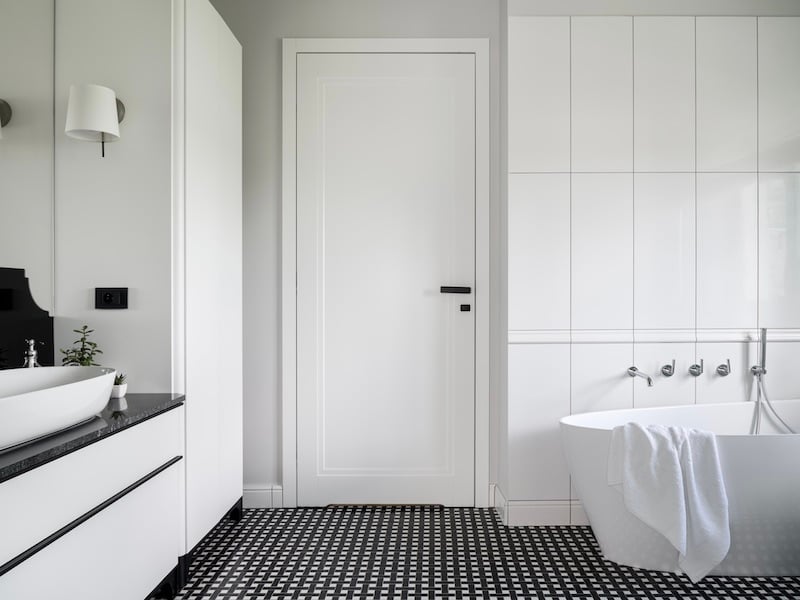
Types Of Interior Doors
The doors you pick should reflect the overall design of your home and serve their purpose in terms of providing privacy, lessening sound transmission, controlling temperature and, of course, fitting within your budget.
1. Solid Wood
Solid wood doors are made from various species such as mahogany, maple, cherry, alder, fir, and pine. Some species are hard wood, and some are soft, and they each have unique characteristics that affect the graining and color of the wood. Solid wood doors provide a high level of sound reduction. They also feel substantial in weight and have a sturdy look. Keep in mind that fluctuations in temperature and humidity can cause solid wood doors to shrink, expand, or warp, so choose a composite door instead of solid wood for a bathroom or other damp area in your home.
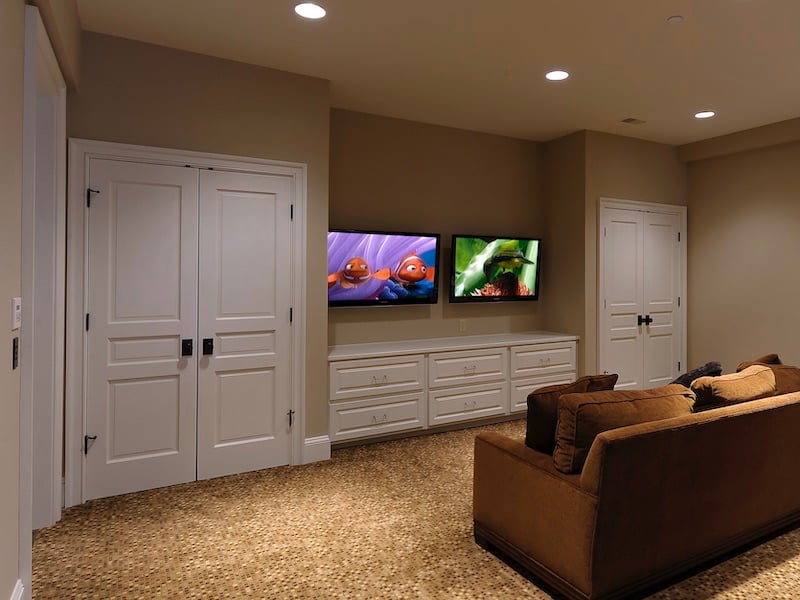
2. Wood Composite
A wood composite door is made from a compound of wood fibers, reconstituted wood, or other wood derivatives. Composite doors will not shrink or expand and are less expensive than solid wood doors.
- Hollow-Core Doors
Hollow-core doors are popular since they are affordable and available in a wide variety of styles. The outside is made from plywood, fiberglass, or a molded composite skin, and the inside contains a cardboard honeycomb. Since the inside of the door is hollow, this type of door offers little in the way of sound deadening or temperature control, but they are the least expensive choice on the market. - Solid-Core Doors
Solid-core doors are heavier and transmit less sound than hollow-core doors. This type of door is made from fiberglass, wood, or wood composite on the outside and a wood composite on the inside. They come in a wide variety of styles, and they look and feel more substantial than hollow-core doors. Solid-core doors are typically more expensive than hollow-core doors, but less expensive than solid wood doors.
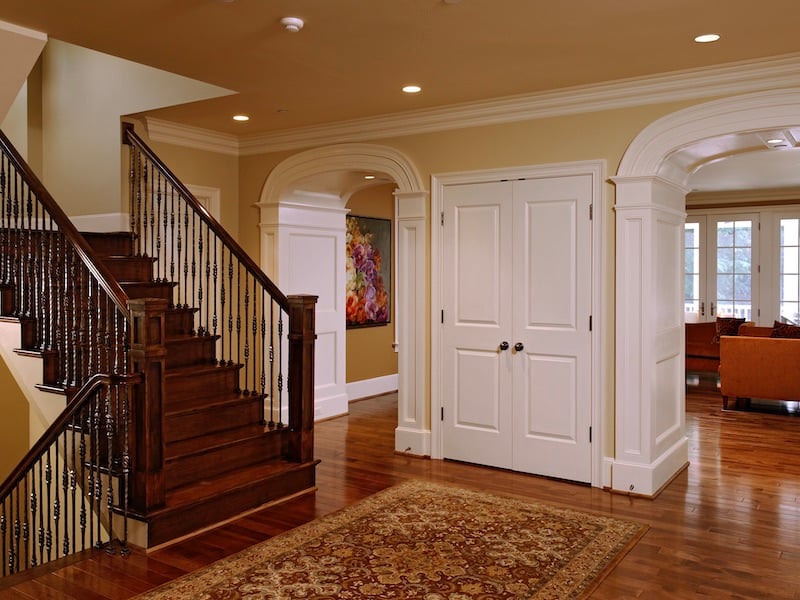
3. Metal Frame and Glass
Metal frame and glass doors are generally used as a design element in a room. They have a sleek, modern look and allow light to flow in, making a space feel brighter and more open while still offering some privacy. Metal doors can be hinged, sliding, or folding and their frames are very slim, allowing for less obstruction of sightlines than traditional doors. They are available in aluminum or steel and can be made to fit almost any space. The strength and durability of the powder-coated metal frame also means it will need very little maintenance over time.

How Do You Choose The Right Front Door For Your Home?
Styles of Interior Doors
There are many styles of interior doors from which to choose. What you pick will depend upon the look you are trying to achieve and the functionality you need from the door in each room.
1. Panel Doors
The most common style of residential interior door is called a panel door. Panel doors can be made from either solid wood or composite materials. They are constructed of vertical stiles and horizontal rails with panels that sit in between the framework to create the design. They can have a single panel or any number of smaller panels that are square or rectangular in shape. Panel doors can also accommodate glass inserts.
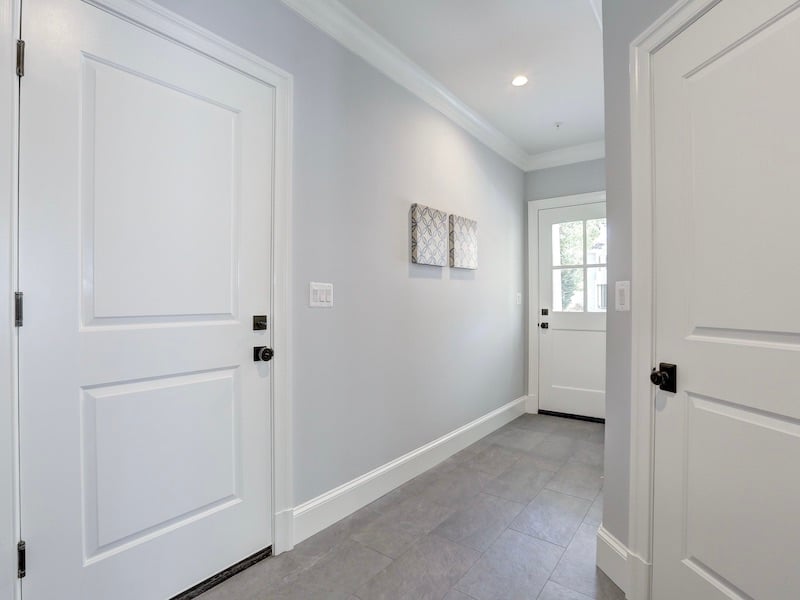
2. Flush Doors
Flush doors are completely flat and smooth on both sides and can have either a solid or hollow core. They have a sleek, clean design aesthetic and work well with contemporary decor. When painted, the slim profile of a flush door allows it to blend-in with the wall for a minimalist look. Since flush doors are simpler to manufacture than traditional paneled doors, they are often a less costly option for a homeowner to choose.
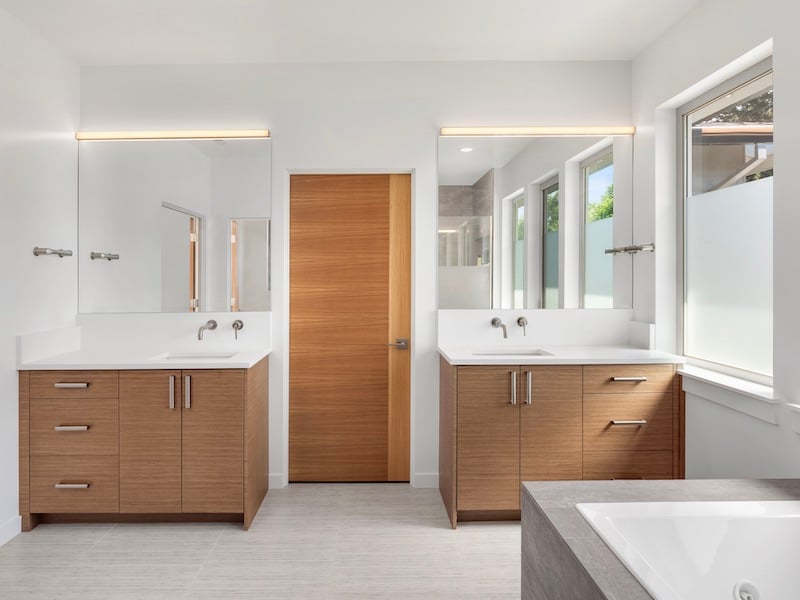
3. French Doors
French doors are double doors that swing open and have full-length transparent or opaque glass panes. There can be one single pane of glass, or the panes can be divided by mullions. French doors are mainly used for design purposes, not for privacy. They allow in lots of natural light and are available in different styles to work with any type of décor.
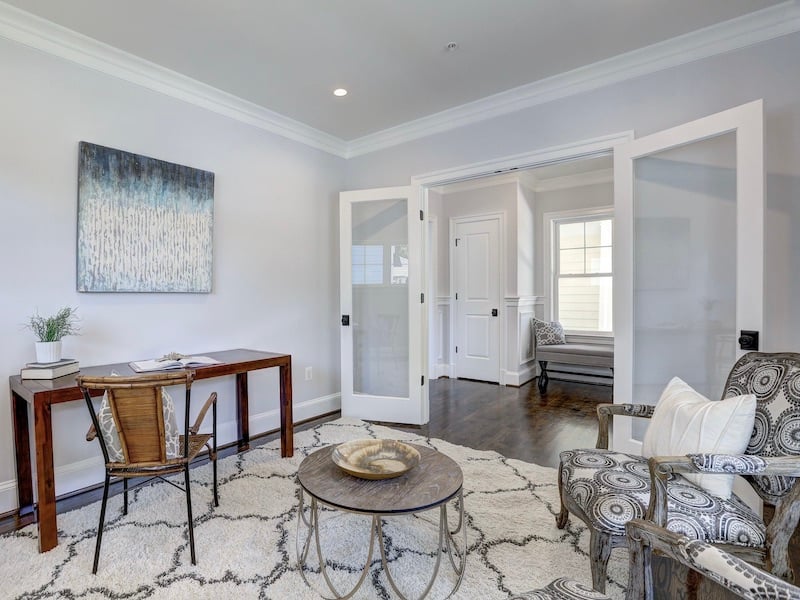
4. Sliding Or Barn Doors
Sliding or barn doors hang from a top rail and have one, two, or more segments that slide past each other. The exposed hardware at the top gives them a unique look, and they are typically used for closets or other tight spaces that will not accommodate a swinging door. Sliding or barn doors are available in styles that range from rustic to modern. To make a small room seem larger the doors can be mirrored, or they can have glass panes to allow natural light into a room with no windows.
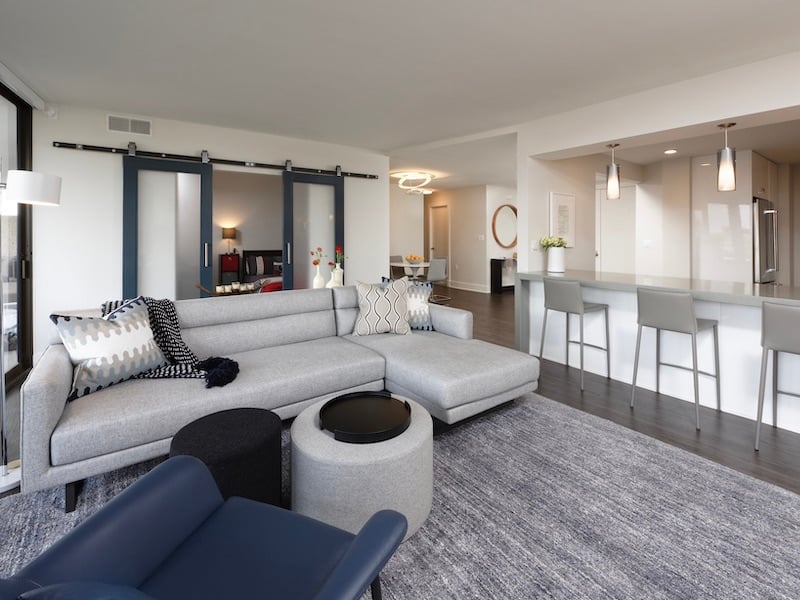
5. Pocket Doors
Pocket doors also slide, but they disappear into a wall. This style of door is perfect for small spaces where a swinging door is not practical or in a room where you want the door to be tucked out of sight. Pocket doors can be used to divide areas in an open concept floor plan, can have solid panels or glass inserts, and can be customized with various finishes to fit any type of decor.
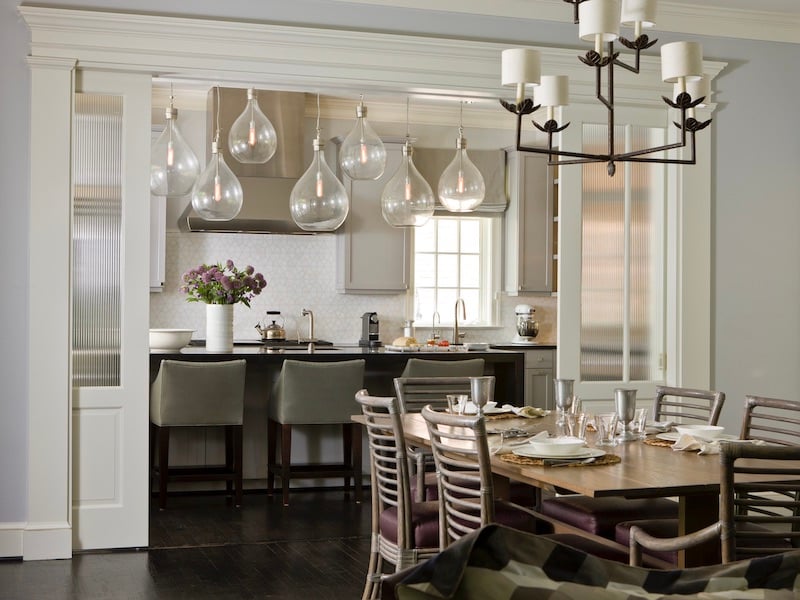
6. Bi-Fold Doors
Bi-fold doors can cover a large opening where the swing of a standard door would be too wide. They are multi-paneled, hinged, slide on a track, and fold up against a wall or door jamb. Bi-fold doors are ideal for compact spaces like closets, pantries, or narrow hallways. They can work with the look of any home and are available in wood, glass, aluminum, and vinyl.
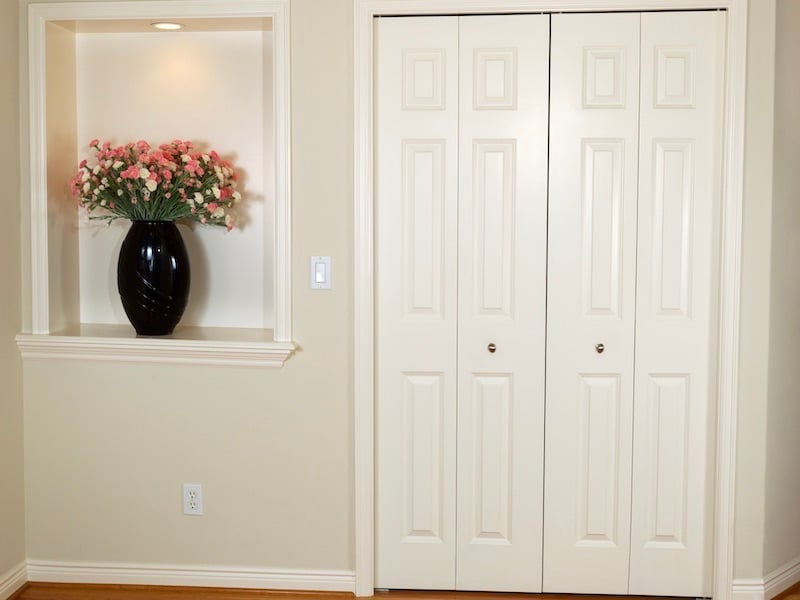
7. Louvered Doors
Louvered doors have a slatted design to facilitate air circulation while still offering visual privacy when the door is closed. This style of door is perfect for a laundry room, a bathroom, a room that houses your HVAC equipment, or any place where moist air needs to be vented to prevent stuffiness and the build-up of mold.
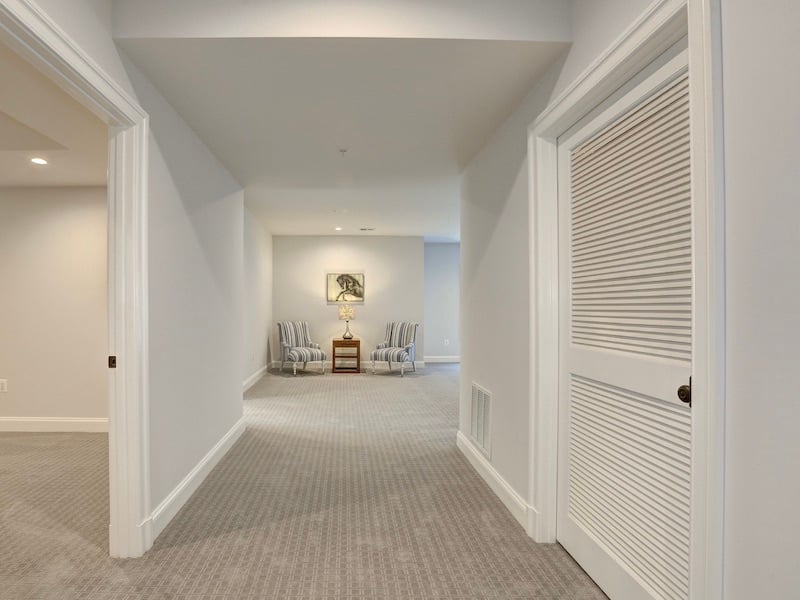
Design Features Of Interior Doors
Interior doors don't have to be boring. Whether your home is contemporary, rustic, or somewhere in-between, there are ways to customize your interior doors to complement your decor. You can choose a one-panel door that is modern looking or a six-panel door for a more traditional feel. Inserts in smooth, textured, or distressed glass are a great way to create visual interest in a room and the glass will allow natural light in to brighten your space. Customize the look of a door by adding grilles or mullions over the glass for a unique look. In a small room, use a mirrored door to create the illusion of a larger space. Design features for interior doors are available at many price points to fit any budget.
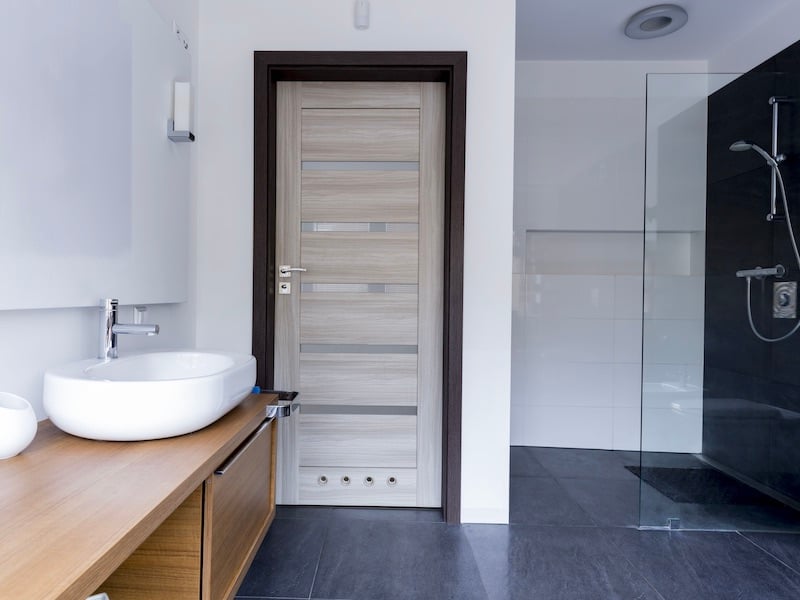
Door Slabs versus Prehung Systems
Doors can be purchased as slabs or prehung. A door slab is simply the door itself; you may need only a door slab if you plan to use an existing door frame. A prehung system includes all the parts you will need: the door, the frame, and the hinges.
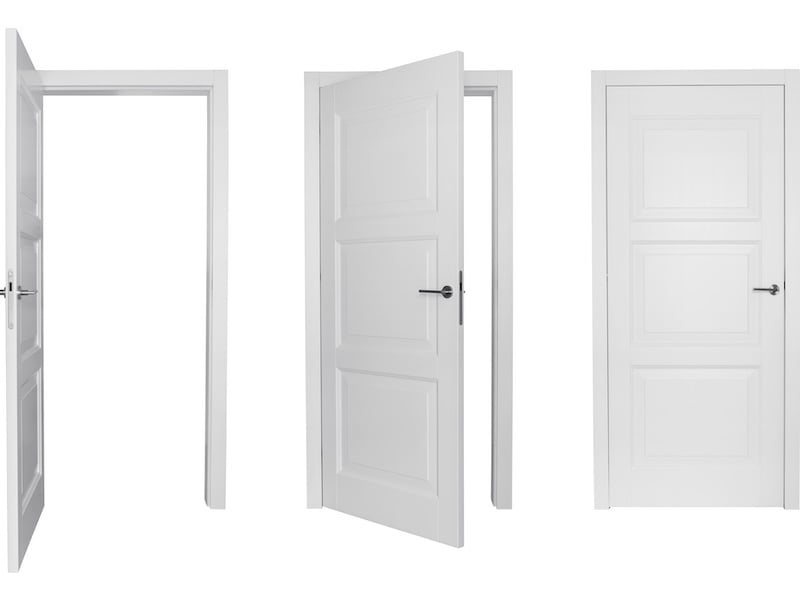
Sustainable Materials and VOCs
When selecting doors for your home, look for Green Building Initiative and Forest Stewardship Council certifications indicating that sustainable and locally sourced materials were used in the manufacturing process. In addition, buy doors from companies that are taking steps to reduce VOC emissions, resulting in fewer toxins being released into the air during the manufacturing process and afterwards in your home.
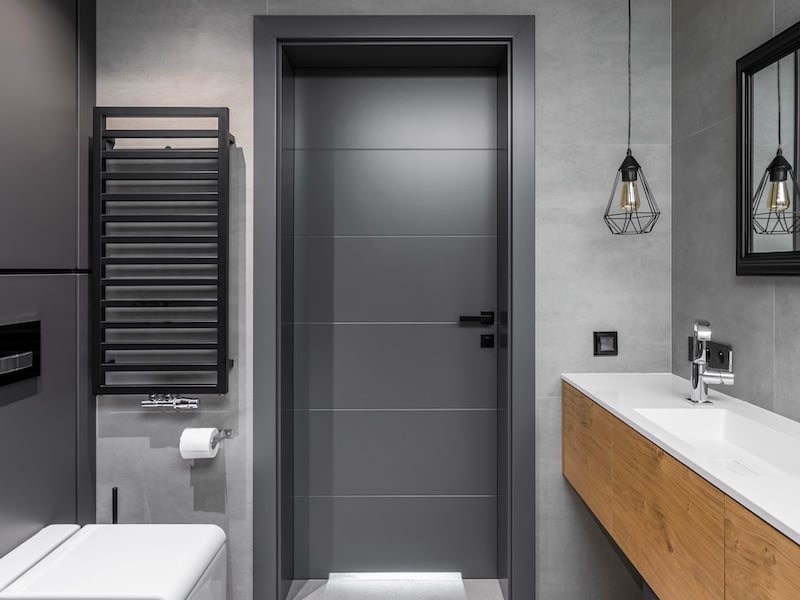
At Meridian Homes, we specialize in luxury remodeling and custom home building in the Washington, D.C. area. Our mission is to create exceptional residences that exceed expectations. Our highly personalized design process and careful management of every project have earned us a reputation over many years for outstanding client service and solid, beautiful craftsmanship. Contact us today to begin your custom home or remodeling project.




